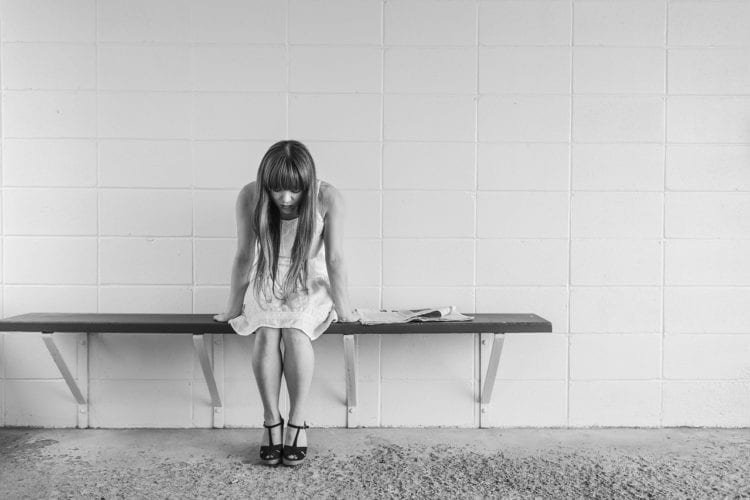Practicing gratitude could be one of the most powerful but overlooked behaviour you could take to rebuild a relationship. This post explains how.
When you are working hard to rebuild a relationship it can feel like your whole world is consumed by it.
Like everything else is in limbo until this one thing is in a better place.
And, for as long as you’re caught in the struggle of rebuilding your relationship and life, it’s so easy to lose perspective and not see the forest for the trees anymore.
But if you truly want to rebuild your relationship, you need to work hard to maintain a healthy perspective in all of the hurt and uncertainty.
And one of the best ways to do that is to start with a simple daily habit: practicing gratitude.
Now, while practicing gratitude as a general daily habit is crucial for our overall wellbeing, at this point, you may not see anything for which you could be grateful because of your situation.
And that’s normal.
But practising gratitude isn’t about being grateful for what sucks in your life or for where you are stuck at the moment.
No,
Practicing gratitude is about learning to focus on the things you CAN appreciate in spite of your perceived problems.
It’s learning and adopting a new way of “seeing” even when you’re still in the midst of your difficult situation.
That shift in perspective is what has given thousands of other people like you the focus, courage, and strength to overcome their challenging situations and create something better.
But it starts with attitude, and being able to practice gratitude even in the midst of pain is what sets people free.
Because when your situation doesn’t control your mind anymore, few things can imprison you.
This idea was one of the single most important practices in Stoic philosophy, namely differentiating between what we can change and what we can’t, and what we have influence over and what we do not.
As Epictetus once said,
The chief task in life is simply this: to identify and separate matters so that I can say clearly to myself which are externals not under my control, and which have to do with the choices I actually control. Where then do I look for good and evil? Not to uncontrollable externals, but within myself to the choices that are my own …
Epictetus
Practising gratitude will help you to see your life in a way that can not only lessen the panic you are feeling but also open up your thinking to know which things you can change and which not.
And in the midst of rebuilding your relationship, it can help you find new solutions to old problems.

Now, even though this might sound great, there is a problem we all need to be aware of – we aren’t hardwired to be grateful.
That means it’s a skill we have to learn and practice if we want to get good at it.
So there is power in practising gratitude but it’s not something you do automatically.
In fact, as people, we actually have what is called a “negativity bias.”
But what does that mean?
The negativity bias is the phenomenon by which humans give more psychological weight to bad experiences than good ones.
In fact, some researchers assert that negative emotions have an impact close to 3x stronger than positive emotions.
With this in mind, you can start appreciating why practising gratitude doesn’t come naturally for us.
We are more inclined to focus on the negative in our lives and even give it more weight than the positive.
So learning to practice gratitude, in a sense, goes against our nature.
But that’s exactly why it’s important to learn and practice.
Now, there are multiple reasons to practice gratitude and several ways to practice it.
Let’s start with why you need to include practicing gratitude in your life.
The reasons you want to practise gratitude is short and sweet but very powerful.
People who regularly practice gratitude are:
- happier,
- feel more alive,
- sleep better,
- are more compassionate and kinder
- and even have stronger immune systems that make them healthier.
What we know about happiness in the context of relationships is that happier people make for happier spouses or partners.
The reason happiness, as an extension of gratitude, is so powerful in relationships, is because happier people tend to have a more perceptive outlook on their future and can make the compromises in life that are necessary to rebuild or repair any relationship.
And when you are grateful for what you have, it’s easier to compromise a few small things in the scope of bigger rewards in the end.
Now, what’s important to understand is that practicing gratitude is an active practice which means you don’t wait until you FEEL grateful, but instead actively look for and focus on the things in life for which you CAN be grateful right now.
The reality is that you don’t have to wait for the big things in life to be grateful.
Each day there are things in life for which we can be grateful.
These are often the things that we take for granted.
For instance, you can be grateful for sight and the ability to read this post – thousands can’t.
You can be grateful for the internet, giving you access to millions of people around the world and hundreds of thousands of opportunities and knowledge to improve your life – something millions still don’t have access to.
You can also be grateful for the roof over your head, clean drinking water, hot water to shower in, and the food on your table, no matter how small the portions – again, things millions of people have never known.
The list goes on and on.
I’m not telling you this to make you feel bad or guilty.
I’m reminding you of these things as it’s so easy to lose sight of the “gifts” we have because of the struggles we’re facing in our lives right now, but doing that is not the WHOLE truth.
Just part of it.
Because no matter how challenging your marriage is at the moment, practicing gratitude is possible because there are still many small things you can be grateful for should you choose to focus more on those rather than only the “bad.”
And just to be clear, I’m not asking you to practice gratitude while ignoring the things that need to be repaired in your relationship.
No, I’m asking you to realise that you’d be in a much better position to repair the things that need repairing when you do it from a place of gratitude rather than overwhelming pessimism.
Because whether it feels like it now or not, there are many things in your life you can be truly happy about as well.
And it’s only when you tap into this often overlooked truth that you’ll find the strength, courage, and inner happiness to take on the things that need to be repaired.
Now, it won’t matter how often you practice being grateful, but it does matter that you make it a habit in your life.
I challenge myself to consciously practice gratitude twice per day – when I wake up and when I go to sleep.
As I’m lying in bed I clear my mind for a moment and focus on at least three things I’m truly grateful for and I “feel” them as much as I can.
Even when I faced certain challenges during that day, I still find those three things.
You’ll find it becomes easier the more you practice doing it.
But you will have to find what works for you in your situation.
Practicing gratitude is fairly simple I think, you will just have to work out the practicalities in your situation.
However, just in case you have no idea how to start and want some guidance, download this daily gratitude affirmation and use it for as long as you need.
At the end of the day, people practice gratefulness in different ways.
You may list what you’re grateful for in your head, write it in a journal, write thank you notes to friends who have helped you or send text messages and emails.
But whatever way you practice being grateful, remember to include your spouse or partner.
Even if it’s just thinking of one thing about them that you’re grateful for.
I know this can be a hard one.
But, if you’re serious about rebuilding your relationship, then your partner should hear from you on at least a weekly basis (more is better) for the things you are grateful for about them, their behaviour, or what they’ve done for you.
When your partner knows that you truly appreciate them, they tend to become more open to listen to your needs, see your changes and engage in helping you to repair the relationship as well.
But it starts with YOU.
As always.
In our next rebuilding a relationship series post, we’re looking at the notion of showing respect at home.


